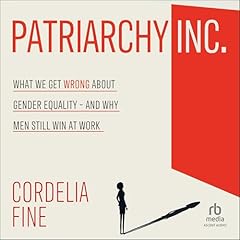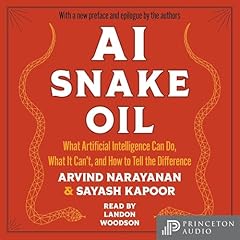
Hijacked
How Neoliberalism Turned the Work Ethic Against Workers and How Workers Can Take It Back
No se pudo agregar al carrito
Add to Cart failed.
Error al Agregar a Lista de Deseos.
Error al eliminar de la lista de deseos.
Error al añadir a tu biblioteca
Error al seguir el podcast
Error al dejar de seguir el podcast
 Exclusivo para miembros Prime: ¿Nuevo en Audible? Obtén 2 audiolibros gratis con tu prueba.
Exclusivo para miembros Prime: ¿Nuevo en Audible? Obtén 2 audiolibros gratis con tu prueba.Compra ahora por $24.28
-
Narrado por:
-
Carolyn Jania
What is the work ethic? Does it justify policies that promote the wealth and power of the One Percent at workers' expense? Or does it advance policies that promote workers' dignity and standing?
Hijacked explores how the history of political economy has been a contest between these two ideas about whom the work ethic is supposed to serve. Today's neoliberal ideology deploys the work ethic on behalf of the One Percent. However, workers and their advocates have long used the work ethic on behalf of ordinary people. By exposing the ideological roots of contemporary neoliberalism as a perversion of the seventeenth-century Protestant work ethic, Elizabeth Anderson shows how we can reclaim the original goals of the work ethic and uplift ourselves again.
Hijacked persuasively and powerfully demonstrates how ideas inspired by the work ethic informed debates among leading political economists of the past, and how these ideas can help us today.
©2023 Elizabeth Anderson (P)2024 TantorLos oyentes también disfrutaron:




















Las personas que vieron esto también vieron:




A gushing rationalization of Lockeian philosophy
Se ha producido un error. Vuelve a intentarlo dentro de unos minutos.
Read alongside Zuboff’s The Age of Surveillance Capitalism or Oreskes and Conway’s The Big Myth, Anderson’s argument provides the needed intellectual history. It shows how “market fundamentalism” was manufactured—complete with strategic misreadings of Adam Smith—that creed colonized everyday moral talk about work. In the vein of Noble laureate Elinor Ostrom, Anderson analyzes how to dislodge it without abandoning markets themselves.
Crucially, Anderson also picks up threads running through modern anthropology and archaeology—elegantly popularized by David Graeber and David Wengrow in The Dawn of Everything, and by Graeber’s Debt. Where those works remind us that our institutions are historical inventions (“the ultimate hidden truth of the world is that it is something we make…”), Anderson shows how to redesign one of the most consequential—work—so markets serve people rather than play substitute religion. A rigorous , humane, and actionable book.
Tour de Force - A Must Read
Se ha producido un error. Vuelve a intentarlo dentro de unos minutos.


